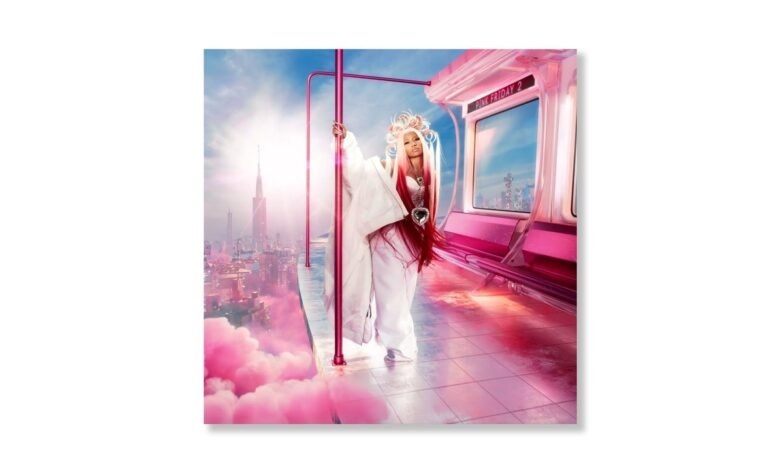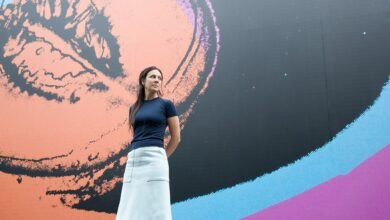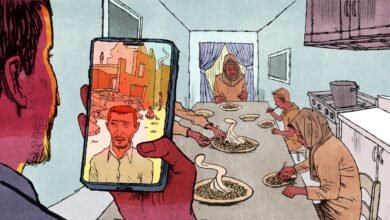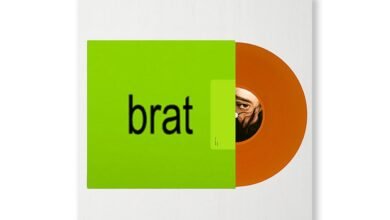“Pink Friday 2,” Reviewed: Nicki Minaj’s Sequel Is Pure Spectacle

There’s a prevailing idea that it’s lonely at the top, but it seems even lonelier to have once been on top and to end up working to convince yourself (and others) that you remain there, the crown still fitting as firmly as it ever did.
Nicki Minaj celebrated her forty-first birthday on December 8th, the same day that her new album, “Pink Friday 2,” was released. Through a rap career spanning a decade and a half, Minaj has always produced studio albums at a thoughtful pace. Her output includes three mixtapes and a long string of feature verses that could reasonably be considered their own distinct body of work. But “PF2” is only Minaj’s fifth studio project, and her first in five years. It is also a sequel, a callback to her 2010 début, “Pink Friday.” The original album produced an impressive run of singles and sold three hundred and seventy-five thousand copies in its first week alone, propelling Minaj to superstardom, a status that she’d seemed well suited for even before the album’s drop. A theatre kid at heart, who attended the Fiorello H. LaGuardia High School of Music & Art and acted Off Off Broadway before making the leap into music, she had an aesthetic theatricality (all those candy-colored dresses and wigs) and a dexterity of flow, weaving in and out of exaggerated vocal tones in a way that managed to be both playful and precise, vicious and cartoonishly appealing.
Four albums later, Minaj’s commercial appeal hasn’t dwindled. None of her albums have débuted below No. 2 on the charts. All have gone at least platinum, even as Minaj has often courted controversy, sometimes bizarrely, as when, in 2021, she tweeted that she was not getting vaccinated against COVID owing to her cousin’s friend in Trinidad, who had received the shot and then suffered swollen testicles. (The Trinidad and Tobago health minister disputed the claim.) Minaj has seen her mixtapes adored in the streets and her albums shatter commercial barriers. She’s given life to a string of alter egos, including Harajuku Barbie, from “Pink Friday,” which gave her notorious fanbase, the Barbz, their name. Most significantly, she disrupted the chart dominance of her male peers in rap and did so on her own terms. It is impossible to ignore her impact or her versatility as an artist.
So a victory lap might be in order, and what better way to set one off than to summon a groundbreaking moment from decades past? With “PF2,” though, the sequel serves mostly as a reminder that times have drastically changed. In the decade-plus since Minaj’s ascendance, a string of other women artists have found dominance on the rap charts and in the rap discourse—Cardi B, Doja Cat, Megan Thee Stallion. Minaj has reacted to the success of her peers (and competitors) with a mixture of graciousness and a kind of embittered protectiveness, sparking endless questions over whether some sly dig in a verse is aimed at a contemporary whom she has deemed less than an equal. The latter mood is what seems to get the best of her on “PF2.” Her rapping on the album sounds the best it has since “The Pinkprint,” from 2014 (her standard-setting record, I think); there’s an ominous tone to her near-whispered flow on “Beep Beep,” where she shrugs, “If I don’t even know you exist, is that beef?” She excels, as she often has, in finding the percussive element in her vocals, as on “Bahm Bahm,” where she emphasizes every consonant in the chorus, creating a kind of separate beat in the gaps between the song’s drums.
The album is not without its flashes of introspection. The opener, “Are You Gone Already,” wrings out a vocal sample from Billie Eillsh’s “When the Party’s Over,” while Minaj raps about the death of her father, who was killed in a hit-and-run in 2021. “You never got to meet papa,” the lyrics begin, referencing Minaj’s son by his nickname, Papa Bear. The song exemplifies Minaj’s ability to switch effortlessly between singing a melodious chorus and rapping a fierce verse, a skill that she deploys several times on the album. “Needle” features Drake, and capitalizes on the tenured chemistry the two have built over years of collaboration, but it is Minaj’s airy and sweet vocals on the chorus that give the song its infectiousness.





